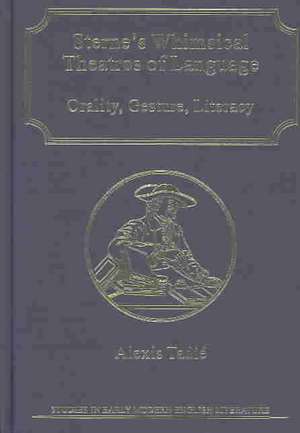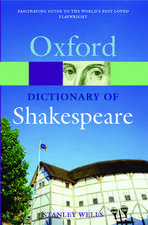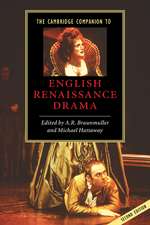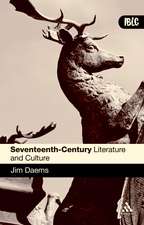Sterne’s Whimsical Theatres of Language: Orality, Gesture, Literacy: Studies in Early Modern English Literature
Autor Alexis Tadiéen Limba Engleză Hardback – 27 mar 2003
Preț: 189.54 lei
Preț vechi: 230.09 lei
-18% Nou
Puncte Express: 284
Preț estimativ în valută:
36.27€ • 37.87$ • 30.02£
36.27€ • 37.87$ • 30.02£
Carte tipărită la comandă
Livrare economică 04-18 aprilie
Preluare comenzi: 021 569.72.76
Specificații
ISBN-13: 9780754630760
ISBN-10: 0754630765
Pagini: 208
Dimensiuni: 153 x 219 mm
Greutate: 0.39 kg
Ediția:1
Editura: Taylor & Francis
Colecția Routledge
Seria Studies in Early Modern English Literature
Locul publicării:Oxford, United Kingdom
ISBN-10: 0754630765
Pagini: 208
Dimensiuni: 153 x 219 mm
Greutate: 0.39 kg
Ediția:1
Editura: Taylor & Francis
Colecția Routledge
Seria Studies in Early Modern English Literature
Locul publicării:Oxford, United Kingdom
Cuprins
Contents: General editor's preface; Introduction; The rule of conversation; The flesh of words; The sight of language; The words of fiction; The paradoxes of the book; Conclusion; Bibliography; Index.
Recenzii
’Through its discussion of orality and print culture, this study offers a useful context for reading Sterne's novels.’ The Eighteenth Century Current Bibliography
Notă biografică
Alexis Tadié was previously Professor of British Literature at the University of Paris 7- Denis Diderot, France, and is now Professor of English Literature, University of Paris Sorbonne, France.
Descriere
This study addresses the intricate links between oral culture and literate culture in the eighteenth century. Tadié traces how perceptions and representations of language move from a dominance of the spoken word to a dominance of the written word; and this is echoed in the order of the five chapters on conversation, gesture, theatre, fiction, and print. Tadié offers a reading of Sterne's works, arguing that the use of language lies at the centre of Sterne's art; he approaches this historical dimension of the texts in the context of eighteenth-century theories of language. He brings into focus the heterogeneity of Sterne's texts; and he demonstrates how Sterne's awareness for the variations of language links up with his interest in the form of the book, and with the use of all the potentialities of print.





















